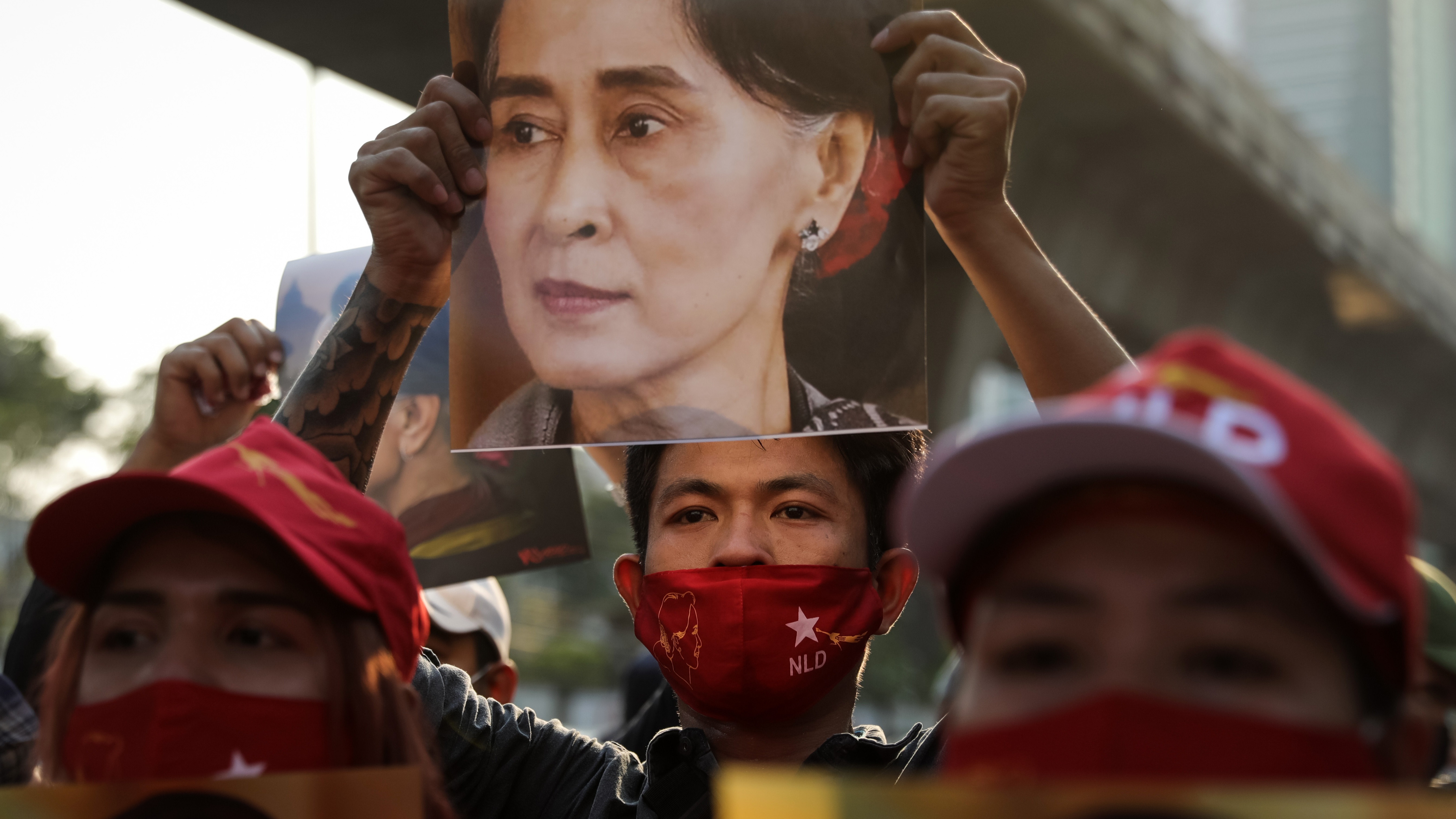What next for Myanmar after military coup?
Aung San Suu Kyi and other elected leaders detained as military seizes control

A free daily email with the biggest news stories of the day – and the best features from TheWeek.com
You are now subscribed
Your newsletter sign-up was successful
Troops are patrolling the streets of Myanmar amid a communications shutdown after the nation’s military seized power and declared a one-year state of emergency.
The army’s TV station announced early on Monday that power had been handed over to commander-in-chief Min Aung Hlaing following the arrests of Aung San Suu Kyi and other leaders of the National League for Democracy (NLD).
The crackdown follows a landslide victory for the NLD in the November election, seen as a referendum on the democratic government. The military has claimed - without producing evidence - that the vote was marred by fraud.
The Week
Escape your echo chamber. Get the facts behind the news, plus analysis from multiple perspectives.

Sign up for The Week's Free Newsletters
From our morning news briefing to a weekly Good News Newsletter, get the best of The Week delivered directly to your inbox.
From our morning news briefing to a weekly Good News Newsletter, get the best of The Week delivered directly to your inbox.
What happens now?
In a letter written in preparation for her arrest, Suu Kyi warned that Myanmar was being forced back under dictatorship and urged NLD supporters to “not accept this” and “protest against the coup”, the BBC reports.
However, major disruptions to the country’s internet and phone services mean “it’s difficult to understand what exactly is happening and what the coming days will entail for those in Myanmar”, says the Southeast Asia Globe.
The Times’ Asia editor Richard Lloyd Parry writes that “the most convincing explanation” for the coup is “the wounded pride of an army that presents itself as the people’s heroes and which cannot stomach being publicly exposed as so unpopular”.
A free daily email with the biggest news stories of the day – and the best features from TheWeek.com
The military drew up Myanmar’s 2008 Constitution, which saw a partial return to democracy in the ethnically-divided nation, and “has long seen itself as the guardian of national unity and the constitution”, Reuters says.
Known as the Tatmadaw, the military gets an unelected quota of 25% of parliamentary seats and maintains power over the ministries of defence, home affairs and immigration.
But the Union Solidarity and Development Party (USDP), the successor to the formerly ruling military junta, performed badly in November’s election, dropping seats across both houses.
The military claims that the rival NLD’s victory in winning 83% of the available seats was a result of widespread voter fraud.
Although hopes linger that the stand-off can be resolved through negotiations between the government and the military, what will happen in the coming days is a matter of speculation.
As Lloyd Parry notes in The Times, the political backdrop has “changed since the last time Suu Kyi was under house arrest, in 2010”.
Back then, Suu Kyi was seen as a beacon of democracy in the troubled nation, after winning the Nobel Peace Prize in 1991.
But having soiled her global standing through her “defiant indifference” to the genocide of the Rohingya Muslims, Lloyd Parry continues, “she will never again command the unquestioned moral authority that used to be her greatest strength”.
Joe Evans is the world news editor at TheWeek.co.uk. He joined the team in 2019 and held roles including deputy news editor and acting news editor before moving into his current position in early 2021. He is a regular panellist on The Week Unwrapped podcast, discussing politics and foreign affairs.
Before joining The Week, he worked as a freelance journalist covering the UK and Ireland for German newspapers and magazines. A series of features on Brexit and the Irish border got him nominated for the Hostwriter Prize in 2019. Prior to settling down in London, he lived and worked in Cambodia, where he ran communications for a non-governmental organisation and worked as a journalist covering Southeast Asia. He has a master’s degree in journalism from City, University of London, and before that studied English Literature at the University of Manchester.